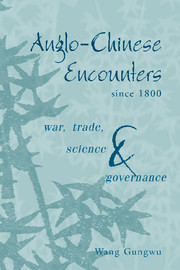4 - “To convert”
Published online by Cambridge University Press: 22 September 2009
Summary
The Chinese fought better on land than at sea but they traded well wherever they went. Losing repeatedly to foreigners in all their wars in the nineteenth century was a traumatic experience from which China has yet to recover fully. Learning to trade efficiently in a capitalist system was easier, but the political partners whom Chinese merchants have had both inside and outside the country were difficult to please. When we come to the words, “to convert”, however, the picture is different again. Meeting with a powerful and persistent alien religion was an experience the Chinese had not had for a very long time. When Buddhism captured their imagination nearly 2,000 years ago, it brought a spiritual rhetoric that filled their lives and, by enriching the Chinese language as well, stimulated their minds and earned their admiration. Digesting that body of texts and their wealth of ideas for the next millennium seemed to have satisfied most Chinese until recent times. They themselves remained without an indigenous tradition of religious conversion. Chinese elites felt a duty to bring their civilisation to non-Han minorities from time to time, but the idea of converting others to a Chinese religion was not something they readily understood. It is interesting to note that China, apart from some pantheistic beliefs, did not develop a religion of its own. This is unusual for a continuous historic civilisation.
- Type
- Chapter
- Information
- Anglo-Chinese Encounters since 1800War, Trade, Science and Governance, pp. 75 - 106Publisher: Cambridge University PressPrint publication year: 2003
- 1
- Cited by



